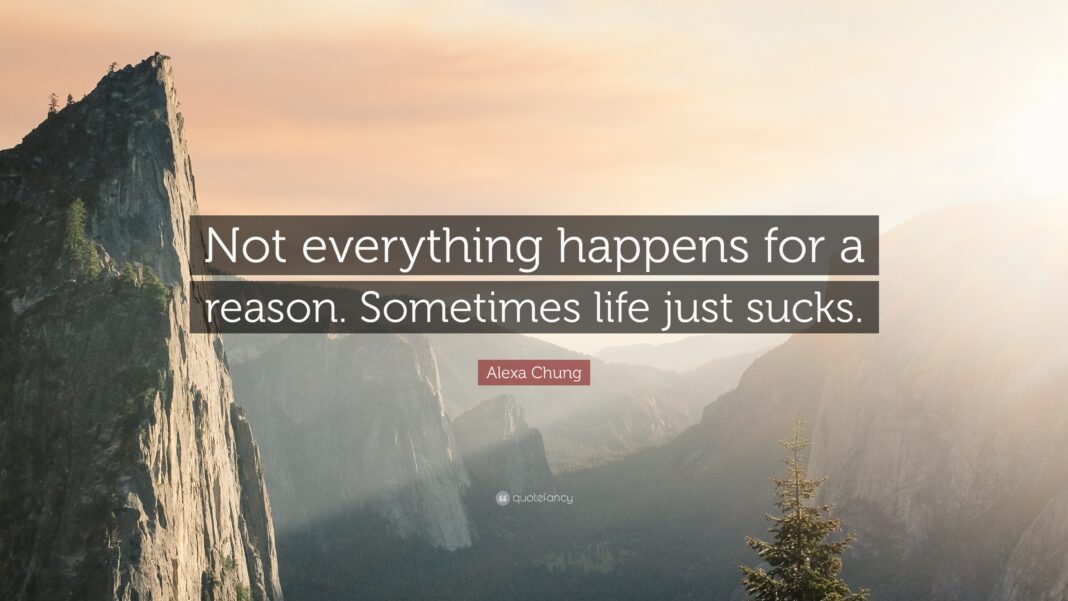We often hear that we control our destinies, that wise decisions will lead to a successful life. When things go awry, the common refrain is, “everything happens for a reason.” This comforting belief implies that every event, good or bad, serves a greater purpose. However, life is far more chaotic and random. This article delves into why not everything happens for a reason, exploring historical examples, scientific theories, and philosophical insights to reveal the true nature of life’s unpredictability.
Historical Unpredictability: The Kyoto Example
Consider the seemingly insignificant vacation of Mr. and Mrs. H.L. Stimson to Kyoto, Japan, in 1926. This trip had unforeseen consequences nearly two decades later. In 1945, Henry Stimson, as the U.S. Secretary of War, played a crucial role in excluding Kyoto from the list of atomic bomb targets. Instead, Hiroshima and Nagasaki were bombed, resulting in immense loss of life.
This incident highlights the randomness of life. A vacation and a passing cloud—events that seem trivial—ended up influencing a monumental decision. This example demonstrates how minor, random occurrences can have significant, unforeseen impacts.

Theories of Change: Contingency vs. Convergence
To comprehend why not everything happens for a reason, we can turn to evolutionary biology, which debates between two concepts: contingency and convergence.
- Convergence suggests that certain outcomes are inevitable within specific contexts. Despite some variation or “noise,” the system ultimately reaches the same endpoint.
- Contingency posits that small, random changes can lead to vastly different outcomes. These “flukes” significantly impact the direction of evolution and, by extension, our lives.
Applying this to our lives, imagine waking up and deciding to hit the snooze button. If you could rewind time and choose not to hit snooze, how would your day change? This small decision could set off a chain of events that might alter your life significantly, illustrating the concept of contingency.
The Butterfly Effect: Small Actions, Large Consequences
Chaos Theory, particularly the Butterfly Effect, supports the idea that not everything happens for a reason. The Butterfly Effect suggests that small actions can lead to significant, unpredictable outcomes. For example, a butterfly flapping its wings in Brazil might initiate a chain of events that causes a tornado in Texas weeks later.
This concept applies to human actions as well. Every decision we make, no matter how minor, can have ripple effects that change the course of our lives and the lives of others. National Geographic on Chaos Theory
The Illusion of Control
Despite evidence of randomness and chaos, humans crave control and purpose. This belief is comforting, providing a sense of stability in an unpredictable world. However, acknowledging life’s randomness can be liberating, allowing us to focus on making the most of our circumstances rather than striving for a predetermined purpose.
Embracing Uncertainty
Accepting life’s randomness can have psychological benefits. Acknowledging that not everything happens for a reason can reduce anxiety and increase resilience. Instead of fearing wrong choices, we can become more adaptable and open to new experiences.
Martin Luther King Jr. referred to the interconnectedness of humanity as the “Garment of Destiny.” Our lives are interwoven, and pulling one thread can change the entire tapestry. This metaphor highlights the complexity and interconnectedness of our actions and their consequences.
Finding Joy in the Unexpected
Recognizing that we might be accidents of existence can lead to a more fulfilling life. Rather than seeking a grand cosmic purpose, we can find meaning in the present moment and our connections with others. Life’s unpredictability and the flukes that shape our paths can bring unexpected joy and opportunities.
Conclusion: Embrace the Chaos
The belief that everything happens for a reason is comforting but ultimately misleading. Life is filled with random, contingent events that shape our destinies in ways we can’t predict or control. By embracing chaos and uncertainty, we can live more fully, find joy in the present, and create meaningful connections with others.
For more insights into the randomness of life and the impacts of small, seemingly insignificant events, explore these resources:
- National Geographic on Chaos Theory
- Psychology Today on the Benefits of Embracing Uncertainty
- Scientific American on Evolutionary Biology
Understanding and accepting that not everything happens for a reason allows us to navigate life’s unpredictability with greater resilience and appreciation for the moments that truly matter.


